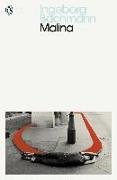'An intense, courageous novel, equal to the best of Virginia Woolf and Samuel Beckett' The New York Times
Part detective novel, part love story, part psychoanalytic case study, Malina is a staggering portrait of a writer trying to tell her own story in a world dominated by men.
'I was subordinate to him from the beginning, and I must have known early on that he was destined to be my doom'
A woman in postwar Vienna walks a tightrope between the two men in her life. There is her lover Ivan, beautiful and unavailable, who obsesses her. And there is Malina, the civil servant with whom she shares an apartment: reserved, fastidious, exacting, chillingly calm. As the balance of power between them starts to shift, she feels her fragile identity unravelling, gradually revealing the dark, bruised heart of her past.


